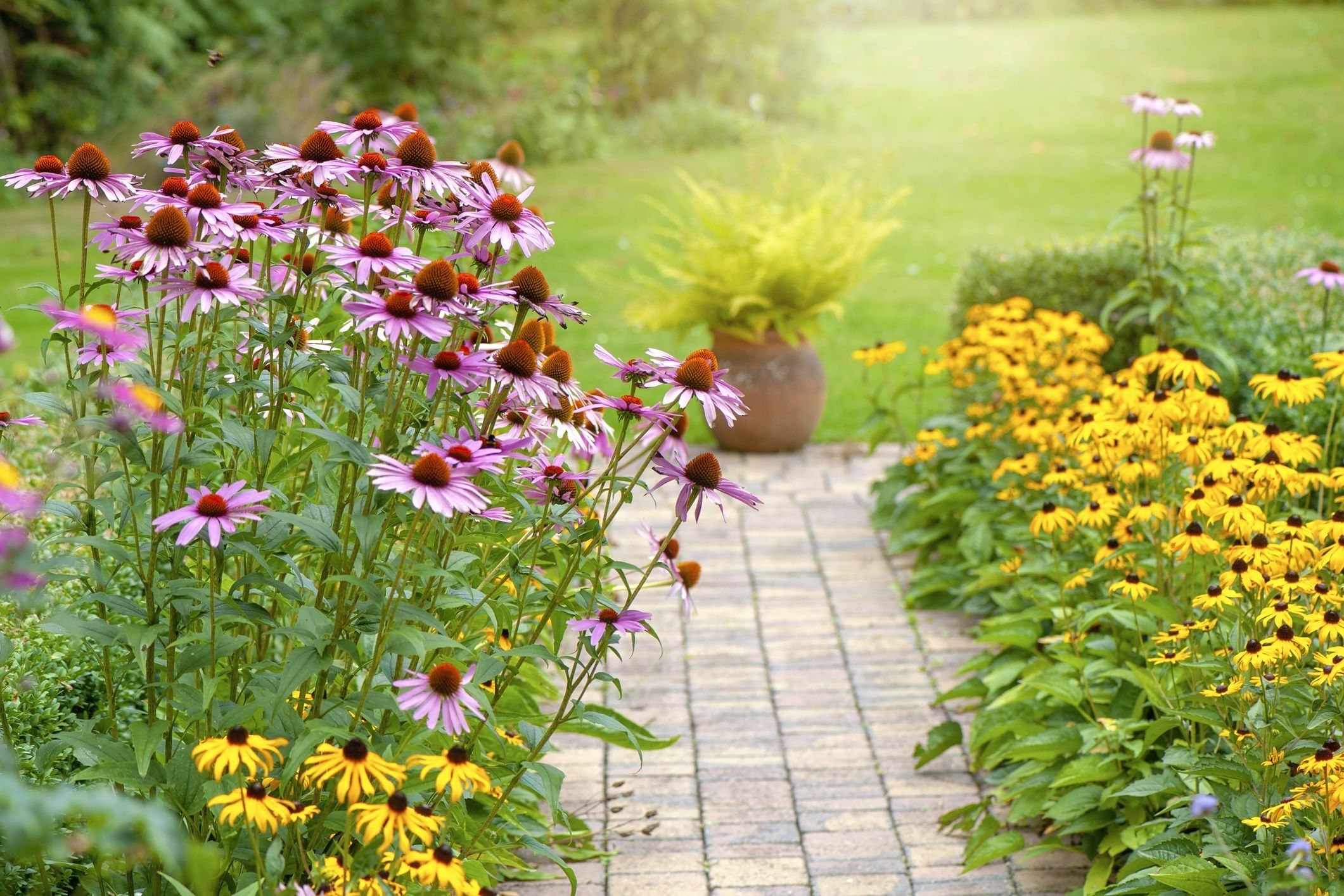Table of Contents
Whether your garden style is welcoming and romantic or enchanting and elegant, the climate in the UK can impact it drastically. Hence, you might want to grow perennial plants in your garden that would last longer than 2 years.
Perennials are common UK garden plants that survive more than two years, elevating the beauty of your garden.
Unlike biennial plants or annual plants, these plants grow back in spring after dying down in winter. These plants re-emerge from the same root system.
Perennials come in various shapes, sizes and colours. Hence, they are extremely versatile for your garden. These common UK garden plants can be a great option for you, and they can be used as accent plants, ground covers, and borders. You can also use perennials in a mixed planting scheme.
In this article, you will get a clear idea regarding various types of perennials that is best for your garden. Moreover, you will get guidance on how to care for and grow them beautifully.
5 Kinds of Perennials (Common UK Garden Plants)
In this guide, you can explore more about common types of perennials and their characteristics, along with the benefits of growing them. The most common UK garden plant types are herbaceous, woody, evergreen, herbs, and ground covers.
Therefore, whether you are a seasoned gardener or someone who is just starting, this plot will provide you with all the necessary knowledge you need. You may find your inspiration and a thriving passion to create your beautiful perennial garden.
1. Herbaceous Perennials
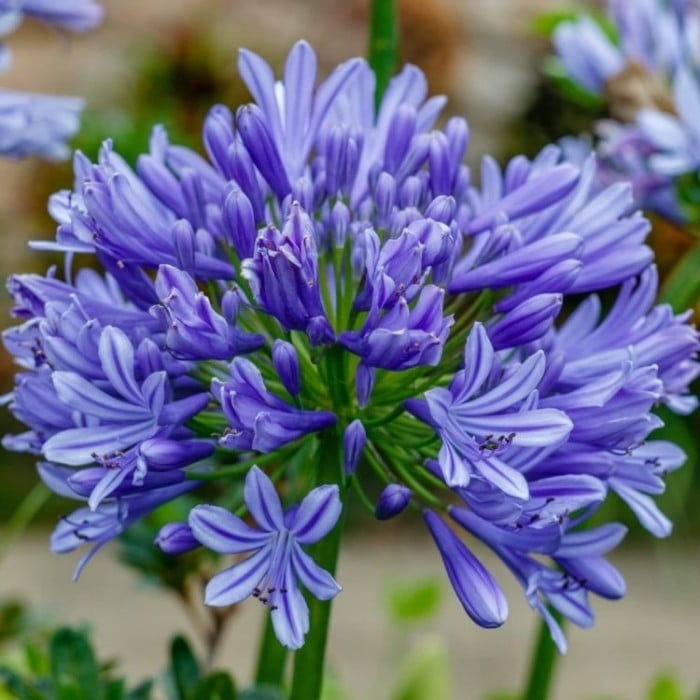
Herbaceous plants are those common UK garden plants that die down each year in an annual phase. However, their roots remain alive for them to grow back again.
These plants come in different shapes, sizes and colours, offering the gardener many benefits. Moreover, these perennials are long-lasting and low maintenance, and you can use them widely across your garden.
2. Woody Perennials
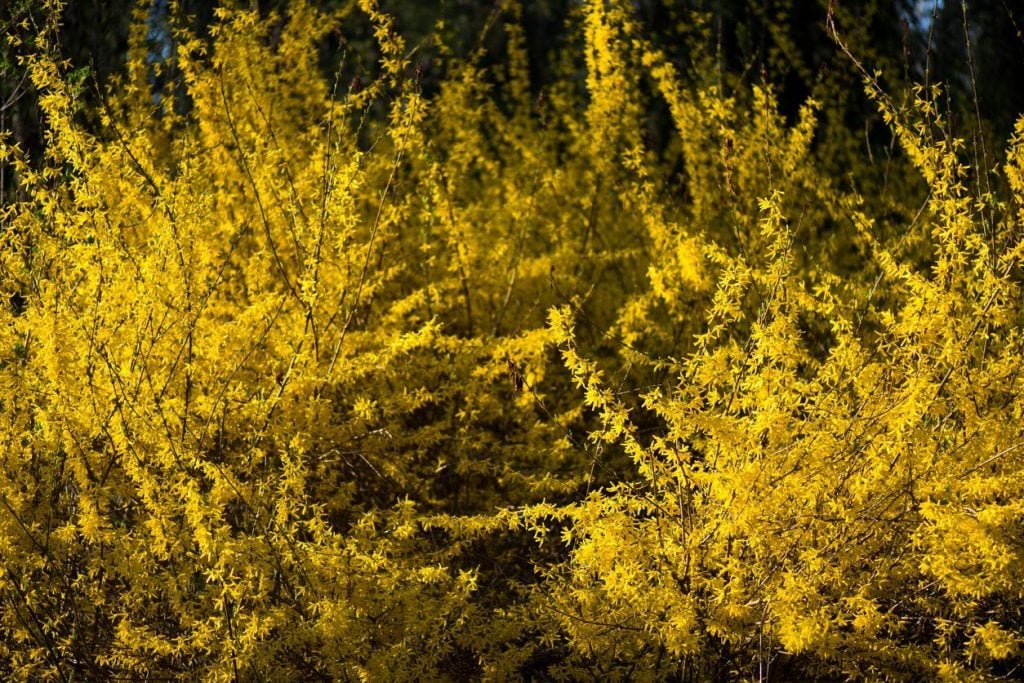
As the name states, woody perennials are those plants that maintain a woody structure. The woody structure is adapted by the trunk and branches over time due to the presence of lignins.
The nature of these perennials can either be evergreen or deciduous. In some climates, the structure above the land of these perennials may die down. However, the roots may not die until extreme climate change, as it is unsuitable for plants.
3. Evergreen Perennials
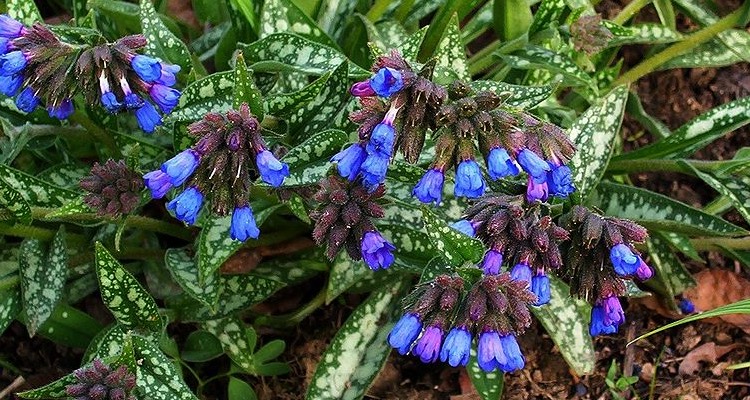
Unlike woody and herbaceous perennials, these common UK garden plants are more reliable and beneficial for gardeners as they keep their green foliage throughout the year. Hence, in winter, the foliage continues to bring attention to beds and borders.
Evergreen Perennials tend to require less care, and this makes them the first choice for beginners gardeners. Therefore, there are many evergreen perennials that you can add to your garden to elevate its beauty.
4. Groundcover Perennials
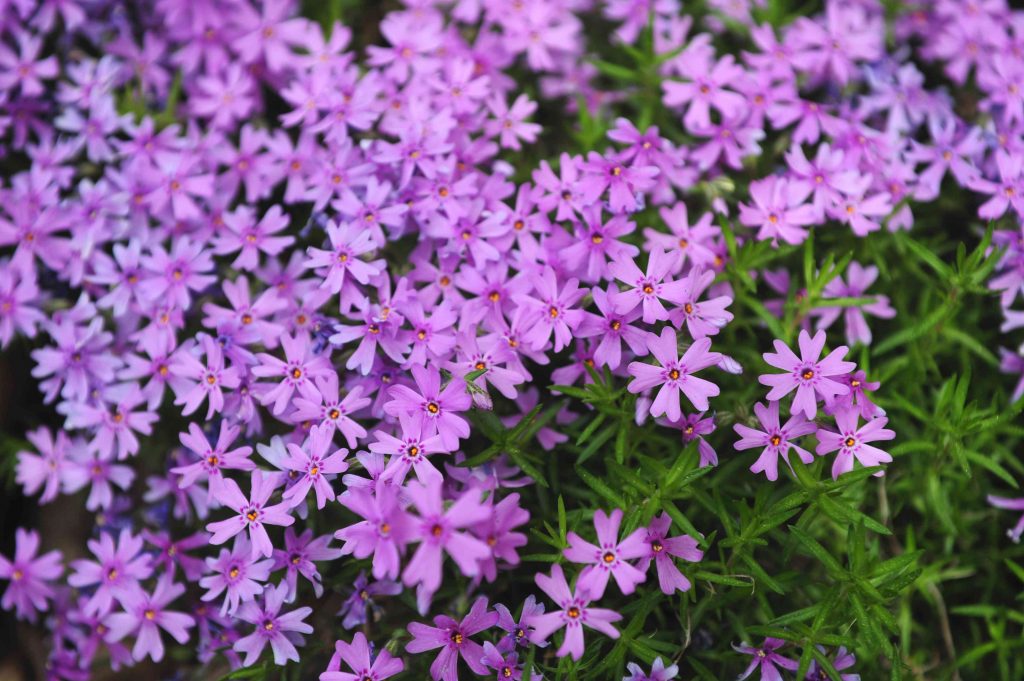
Ground perennials are a type of common UK garden plant that grows close to the ground. Hence, these perennials create a carpet of dense foliage providing many benefits to the gardener, such as soil stabilization and erosion and also creating a natural habitat for insects.
Ground perennials come in a wide variety of colours, sizes and shapes. Hence, it makes them a versatile option for every gardener to add to their garden. Therefore, embodying these perennials in your garden can bring everlasting beauty into your garden year after year.
5. Bulb Perennials
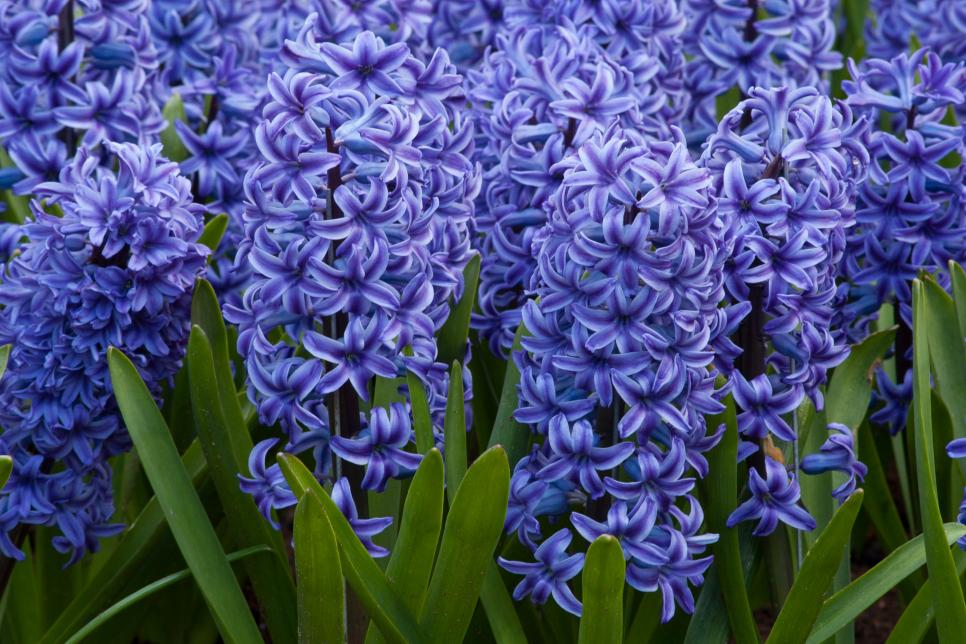
These are the common UK garden plants that grow from a bulb, illuminating into beautiful flowers year after year. Bulb Perennials offer many benefits to the gardener, as they are drought-tolerant and low maintenance.
Moreover, these plants can naturalize throughout the garden. They come in various shapes, colours and sizes, making them a flexible choice for your garden. You can use bulb perennials in your garden to sustain a long-lasting beauty and provide early spring colours.
5 Common UK Garden Plants [Growing and Caring Tips]
1. Shasta Daisy
Shasta Daisy are common UK garden plants that fall under the category of herbaceous perennials. The best blooming season of these perennials is spring to fall under sun exposure. These plants normally grow from 6 inches up to 4 feet.
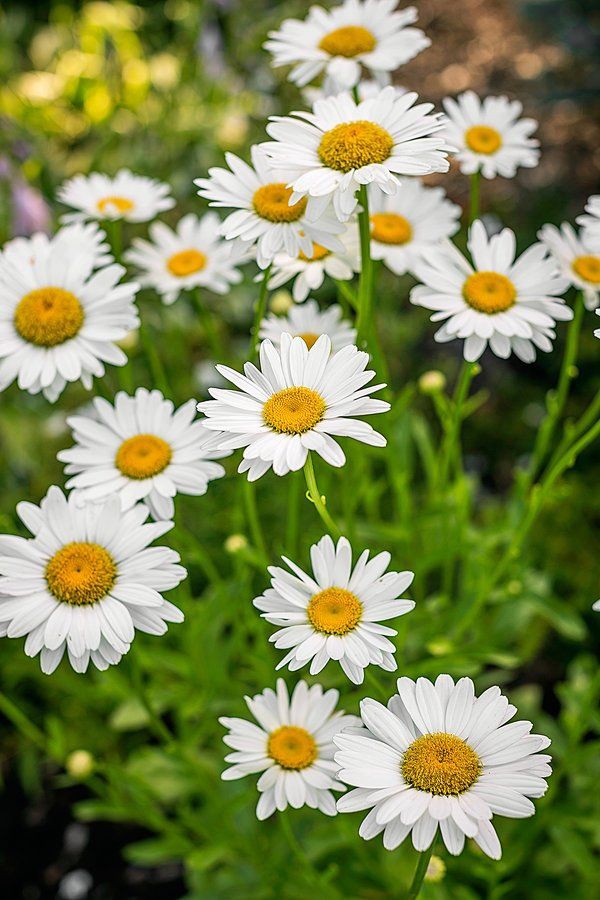
Growing
To grow these plants, you need to take care of some factors like where to plant and what time is it suitable for you to plant these plants.
You need to plant daisies in well-drained soil that is rich in organic matter and receives good sun exposure. Good soil drainage is essential, especially in winter, because if the soil is damp that it can rot the roots.
Caring
- Shasta daisies may require an adequate amount of water systemization, as underwatering and overwatering both harms the plants.
- You would need to deadhead and prune your plant to extend its bloom period and prevent these perennials from going back to seeds.
- Mulching is especially needed to protect these plants from winter.
2. Black-Eyed Susan
Black-eyed Susan is one of the most common UK garden plants that’s been long stapled into perennial gardens because of its beauty and benefits. These plants are drought resistant and can grow up to 1-5 feet along with a wide range of colours like red, yellow and orange.
These perennials can attract birds and are pretty low maintenance. Its leaves are generally deep green and can blend well in a mixed garden system.
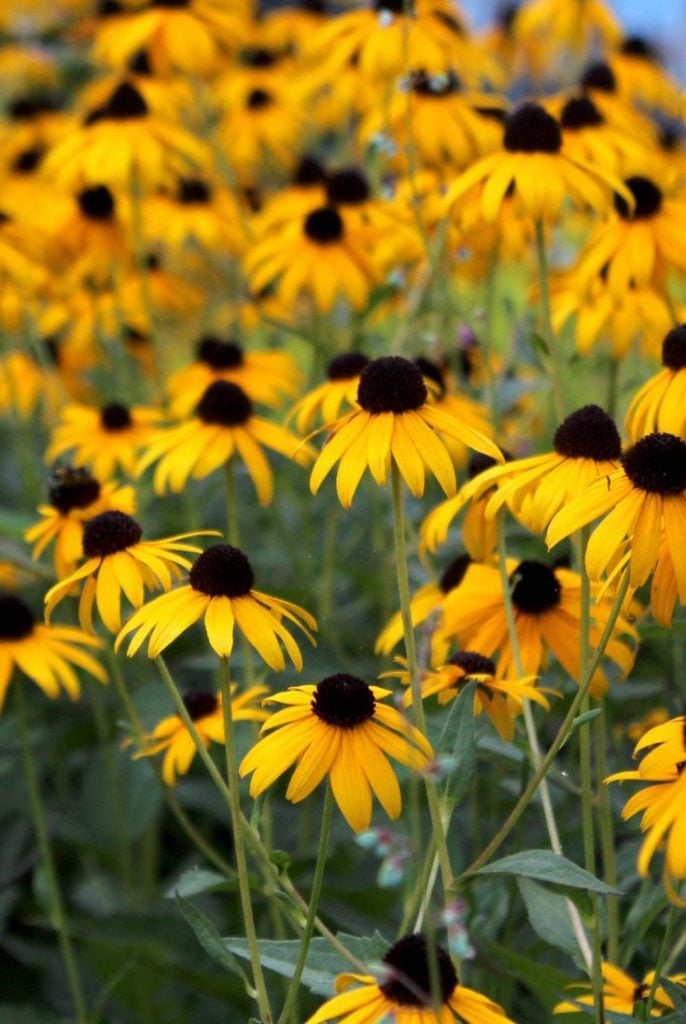
Growing
If you want to incorporate these perennials into your garden, then make sure to plant somewhere with an equally good drainage system that is moist but not soggy. Black Susan can be a good choice for beds, borders, mass planting, gardens, and containers.
Caring
Black Susan is generally easy to care for plants. However, you can use these tips to maintain your garden plants.
- Black Susan loves to stay in the light; hence, you can put them in the sunlight for 6-8 hours a day.
- Although they grow in almost any condition, they need proper watering and soiling or else they can’t thrive well in soggy regions. Moreover, if the soil is sandy, add organic matter to it.
- For healthy growth of the plants, you need to deadhead and prune your plants to extend their longevity.
3. Iris
Iris is the name after the Greek goddess for its tall and beautiful appearance. Despite its elegant demeanour, the iris is known for being a reliable and easy-to-grow plant. These perennials mostly flower from late spring to early summer. However, some hybrids may again bloom later in the season. These lovely flowers may attract butterflies and hummingbirds to make a garden.
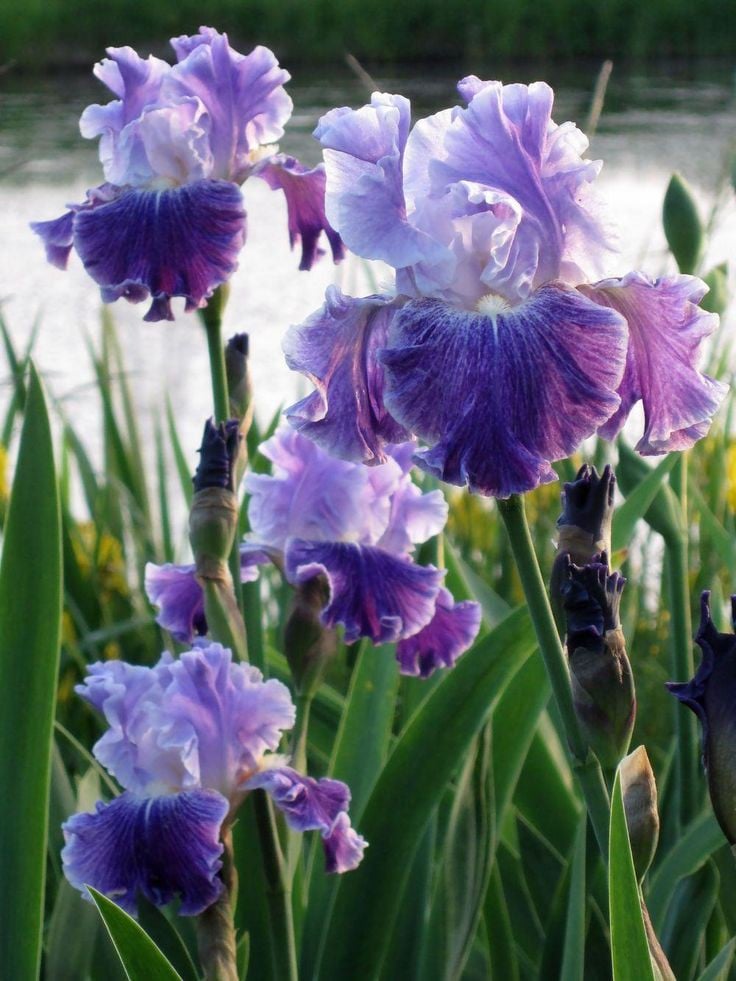
Growing
If you want to grow iris in your garden, then the best way to plant them is to plant their thick stems horizontally while the top is exposed and the root is deep down.
The best time to plant these is when the nighttime temperature falls between 40°-50° F. Hence, this will give the plants enough time to grow well and make your garden look beautiful.
Caring
There are many tips and tricks that you can follow to grow your irises beautifully.
- Make sure to prevent yourself from overwatering the plant, as it will cause the roots to rot.
- Fertilizing your soil in early spring can help your plants to grow vibrantly.
- Do not thrive your roots down under the ground like bulb perennials. Instead, keep the rhizomes exposed.
4. Lavender
Lavender is one of the most common UK garden plants for its medicinal properties. These herbs are easy to grow and need full sun to grow well. Lavender can bring class and elegance to your garden because of its beauty. The scent of lavender is soothing. Hence, it’s the reason why many people use it as an essential oil.
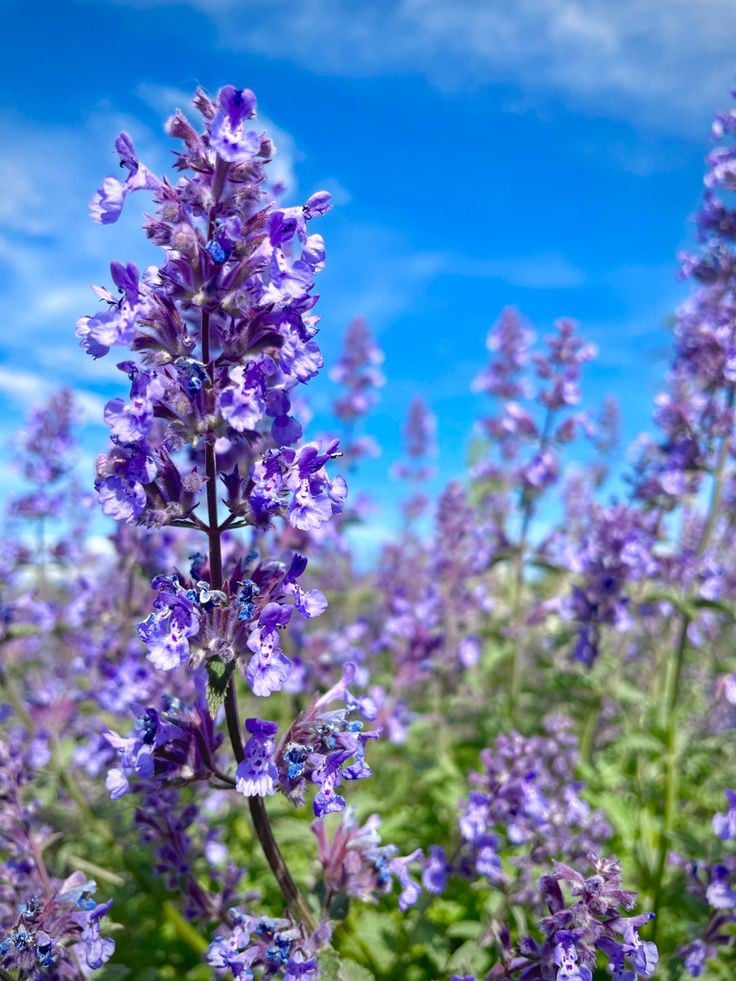
To grow these perennials in your garden, you need to take care of a few things. One of which is that you need to make sure that your garden soil has a proper drainage system so that the plant does not get overly watered. You need to also maintain the frequency of the days you water the plants to avoid soggy roots.
Caring
- To care for the plants, you need to prune these perennials every year immediately after their bloom.
- Lavender plants may not need a lot of fertilizer to grow. However, irritation properly is a necessity for them.
- Remember to mulch the plant to safeguard them against extreme weather conditions.
5. Thyme
Thyme is another plant that falls under the category of woody perennials that grows well in sunny, dry conditions. It is one of the known Mediterranean herbs that enhances the taste of food and goes well with garlic, tomatoes or olive oil.
If you are a beginner gardener, then thyme is one of the easiest plants to grow in your garden. The plant grows only upto 6-12inches in length and mostly grows in loamy, sandy soil.

Growing
To grow the perennials, you must ensure that the plant is getting proper light to grow properly. These plants are drought tolerant overly watering can harm the roots. Thymes can grow well in even poor, stony soil. These plants are fairly small, so you need to make sure that the soil has a proper drainage system. Mulching the soil with grit can be beneficial for your little garden plant.
Caring
- To care for the plant, you need to make sure to spot the plant in a place where it gets an adequate amount of sunlight.
- Water adequately and alternately to make sure that the plant is completely dry before you water it again.
- You can feed your thymes with all purposes diluted fertilizer.
Conclusion
Perennials are a popular choice as a Common UK garden plant as it provides long-lasting beauty while being low maintenance all year round. In this blog, you were able to explore some of the most common types of perennials, including herbaceous and woody varieties, offering tips and advice on how to grow and care for them.
The guide also suggests some plants that you can use in your garden to elevate its beauty of it. Therefore, with the right planting location, soil preparation, and maintenance, perennials can provide colour and texture to a garden for many years ahead.

